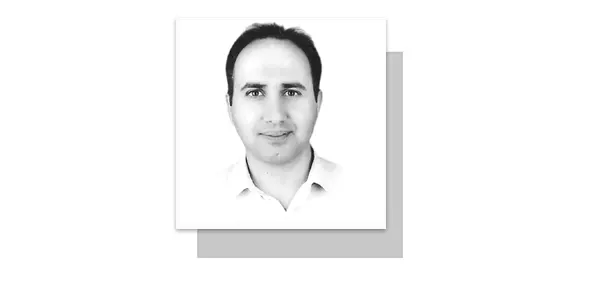HUMAN rights and social justice are the moral pillars upon which a fair and equitable society is built. They signify the fundamental belief that every individual, irrespective of race, gender, religion or socio-economic standing, is entitled to dignity, equality and respect. These ideals are not merely aspirational; they form the foundation for creating a just, peaceful and inclusive world. In Pakistan, the pursuit of these values remains an intricate and ongoing struggle, one that is shaped by historical legacies, cultural nuances and political challenges. While international frameworks such as the Universal Declaration of Human Rights (UDHR) and the Sustainable Development Goals (SDGs) outline a vision for universal rights and justice, the road to achieving these goals in Pakistan is marred by substantial barriers that require sustained efforts and structural changes.
The global commitment to human rights and social justice is growing steadily, with international conventions aiming to set universal standards for the protection and promotion of these rights. Yet, many nations, especially those in South Asia, continue to grapple with the effective implementation of these ideals. Pakistan’s Constitution guarantees fundamental rights, but its realization is hindered by political instability, religious extremism and social divisions, making it difficult for marginalized communities to experience the benefits of human dignity and equality in practice. Pakistan’s human rights record is paradoxical, with multiple international treaties ratified but weak enforcement. This gap between legal commitments and real-world protection perpetuates systemic inequality. Religious minorities, such as Hindus, Christians and non-Muslims, face discrimination despite constitutional guarantees of religious freedom. Blasphemy laws are weaponized against minorities, leading to extrajudicial killings, mob violence and wrongful imprisonment. The absence of effective legal reform has allowed a culture of impunity, where violators are rarely held accountable.
Social justice in Pakistan is closely linked to its socio-economic realities, with a significant portion of the population living below the poverty line and lacking access to basic services like education, healthcare and housing. This economic disparity has led to a rigid class system, limiting upward mobility and preventing the realization of basic rights for large segments of society. Gender equality is crucial in achieving social justice, as women, who represent nearly half of Pakistan’s population, face pervasive discrimination in both private and public domains. Addressing this gender imbalance is not only necessary for human rights but also a critical step towards unlocking Pakistan’s full potential. Empowering women to fully participate in all aspects of society, including the workforce, political leadership and education, will be key to advancing social justice.
Pakistan’s diverse ethnic and religious population, including Hindus and Christians, faces systemic exclusion, persecution, violence, forced conversions and discrimination. This marginalization violates their human rights and hinders progress towards social cohesion and inclusivity, as they lack adequate legal protections and are vulnerable to violence and forced conversions. Yes, Pakistan has made progress in achieving human rights and social justice, with efforts from civil society organizations, human rights defenders and grassroots movements. Progress has been made in areas like child labour, education as well as healthcare, and the government has introduced programs to alleviate poverty and improve the quality of life for marginalized communities. But the country still faces significant obstacles that need to be addressed to fulfil its human rights commitments.
A comprehensive approach is needed to address both the symptoms and root causes of injustice. This includes strengthening the legal framework to ensure accountability for human rights violations, reforming laws to protect all citizens, implementing policies promoting economic equity, challenging cultural norms perpetuating violence, exclusion, and discrimination, and prioritizing public awareness about the importance of human rights and social justice. Education remains a cornerstone in the pursuit of social justice, serving as a powerful tool for social transformation. Ensuring that every citizen, regardless of gender, class, or religion, has access to quality education is essential in breaking the cycle of poverty and inequality. Education not only empowers individuals, enabling them to improve their personal and professional lives, but it also fosters a broader culture of tolerance, respect, and equality. It equips people with the skills and knowledge necessary to challenge societal injustices and become active contributors to their communities.
Improving access to healthcare and social services is crucial in bridging the gap between the rich and poor. By providing essential services that promote physical and mental well-being, Pakistan can ensure every individual has the opportunity to live a dignified life. Together, education, healthcare and social services form the pillars of social justice, laying the foundation for a more equitable society. Only through focused efforts in these areas can human rights and social justice become lived realities for all.
The road to human rights and social justice in Pakistan is long and fraught with challenges, yet this journey must be undertaken. The pursuit of these ideals is not simply a legal or political obligation; it is a moral imperative that calls upon the collective will of society. To build a truly just and inclusive nation, Pakistan must rise above its historical and cultural divisions and commit to the principles of equality, fairness and human dignity. Only then can we begin to fulfil the promise of a society where every individual, regardless of background, has the opportunity to thrive. This is the vision that must guide us as we move forward, towards a future that embodies justice, equality, and humanity in its truest form.
—The writer is PhD in Political Science and visiting faculty member at QAU Islamabad.






